Disclosure: This article contains affiliate links. We may earn a commission from purchases at no extra cost to you, which helps our travel content.
Standing at the intersection of Shibuya Crossing last month, watching the orchestrated chaos of thousands moving in perfect harmony, I couldn't help but see parallels to the delicate ecosystem management we practice back on the ranch. Tokyo, like nature, has its own rhythm—one that business travelers must learn to read and respect. After a dozen trips consulting with Japanese agricultural operations about sustainable ranching practices, I've compiled this field guide for executives looking to navigate both boardroom protocols and those precious hours between meetings.
Decoding Japanese Business Etiquette
My first meeting in Tokyo five years ago nearly ended before it began when I attempted to pocket a business card immediately after receiving it. The subtle wince from my counterpart taught me more than any guidebook could. In Japanese business culture, your card (meishi) represents an extension of yourself.
The proper protocol: receive the card with both hands, examine it respectfully for several moments, comment appreciatively on the title or company, and place it carefully on the table before you during meetings. Only once proceedings conclude should you place it in a dedicated cardholder—never your back pocket.
Hierarchy defines business interactions here. Meetings begin with the highest-ranking person entering the room first, while juniors arrive early to prepare. As a foreign consultant, you exist somewhat outside this structure, but demonstrating awareness of it earns immediate respect.
Before arriving, I always ensure I have quality business cards printed on premium stock. I keep them in a leather business card holder that protects them from damage and signals proper respect for this crucial networking tool.

💡 Pro Tips
- Always bring twice as many business cards as you think you'll need
- When presenting your card, offer it with both hands with the text facing the recipient
- Bow slightly when exchanging cards—depth communicates respect level
Mastering Tokyo's Transit for Business Efficiency
The sprawling Tokyo metro system intimidated me initially—until I realized it operates with the same predictable patterns as seasonal migration routes I've studied back home. Understanding a few key principles transforms this complex network into your greatest business ally.
First, download Japan Transit Planner and Google Maps before arrival, but also invest in a physical pocket map as backup. The Tokyo subway map handkerchief has saved me countless times when my phone died or underground signals failed—plus it makes for an excellent conversation starter with Japanese colleagues.
The Yamanote Line (loop line) functions as Tokyo's circulatory system, connecting most major business districts. Learn this line first, then branch outward. For frequent business travelers, nothing beats the convenience of staying near Tokyo, Shinjuku, or Shinagawa stations—the major transit hubs where multiple lines converge.
When scheduling meetings, always factor in 15 minutes beyond the estimated transit time. Tokyo's stations can be labyrinthine, with some transfers requiring 10+ minute walks underground. I've learned this lesson the hard way, arriving at Otemachi station only to discover my exit was a quarter-mile walk through underground passages.

💡 Pro Tips
- Purchase a Suica or Pasmo card immediately upon arrival to avoid fumbling with individual tickets
- Position yourself near the doors when approaching your stop—hesitation means missing your exit in rush hour
- Use the Japan Transit Planner app to identify the exact train car that will position you nearest to your exit
Finding Authentic Downtime Between Meetings
The true Tokyo reveals itself in the spaces between appointments. While Tsukiji's outer market draws tourists, I've found that Toyosu—the actual working fish market—offers a more authentic glimpse into Japan's relationship with its marine resources. Arrive by 5:30 AM to witness the tuna auctions, then enjoy the freshest sushi breakfast of your life at the market's edge.
For executives needing to decompress, Tokyo's hidden gardens provide sanctuary within the urban expanse. Hama-rikyu Gardens near Shiodome offers the perfect juxtaposition—17th century landscaping surrounded by gleaming skyscrapers. The traditional teahouse on its central pond has become my go-to spot for clearing my mind before important negotiations.
My most productive business relationships have developed not in conference rooms, but during after-hours exploration. Consider inviting key contacts to join you at Kanda Yabu Soba, a 130-year-old noodle institution that survived earthquakes and war. Its historic ambiance creates natural conversation around preservation and tradition—topics that resonate deeply with Japanese business leaders.
For evening relaxation, I skip tourist-filled izakayas for Nonbei Yokocho ("Drunkard's Alley") near Shibuya, where micro-bars seating 5-8 people offer intimate settings for unwinding. Bring a pocket translator device for these encounters—it's transformed my experience by allowing meaningful conversations with locals I'd otherwise never connect with.

💡 Pro Tips
- Reserve downtime in your schedule—Japanese business culture respects balance
- Seek recommendations from hotel concierges for seasonal events that tourists might miss
- Consider hiring a local guide for a half-day architectural or historical tour tailored to your interests
Navigating Gift-Giving Protocol
In Japanese business culture, gifts aren't merely pleasantries—they're essential communication tools that demonstrate thoughtfulness and respect. My approach has evolved considerably since my first fumbling attempts years ago.
The presentation matters as much as the gift itself. I never arrive without a selection of carefully wrapped items from my home region. Small maple products from Canada or specialty items from Virginia always generate genuine appreciation. These gifts should be presented at the conclusion of business, never at the beginning, to avoid any appearance of attempting to influence outcomes.
The gift wrapping kit has become a permanent fixture in my suitcase. Japanese wrapping aesthetics are elevated to an art form, and presenting a beautifully wrapped gift shows respect for this tradition. When receiving gifts, remember to express reluctance twice before accepting—immediate acceptance can appear eager or entitled.
For team meetings, bring enough individually wrapped items for everyone present. I've found that gourmet coffee beans from specialty North American roasters make excellent gifts that aren't available locally. The key is selecting items that showcase your region's craftsmanship while being lightweight enough for international travel.

💡 Pro Tips
- Never give gifts in sets of four (associated with death) or white flowers (used for funerals)
- Remove price tags but leave quality indicators like origin certificates
- Include a small card explaining the significance or origin of regional gifts
Tech Essentials for Tokyo Business Travel
Tokyo's technological landscape presents unique challenges for Western business travelers. Despite the city's futuristic appearance, many businesses still operate on surprisingly traditional systems—fax machines remain common and cash transactions dominate smaller establishments.
Power adapters are essential, but so is understanding Japan's electrical system. While the voltage (100V) is compatible with North American devices, it's lower than the standard 110-120V, meaning some high-powered devices may operate more slowly. I carry a travel power strip that converts plugs while providing multiple outlets from a single adapter—invaluable in hotel rooms with limited sockets.
Internet connectivity requires advance planning. While Tokyo offers excellent public WiFi in transit hubs and major areas, coverage isn't universal. For seamless connectivity between meetings, I rent a pocket wifi device from the airport upon arrival. This provides unlimited data across the city and is far more reliable than international roaming plans.
For presentations, always bring backup copies on multiple media types. I've encountered conference rooms with surprisingly dated projection systems that couldn't connect to modern laptops. My standard kit now includes adapters for HDMI, VGA, and DisplayPort connections, plus PDF versions of all materials on a USB drive as ultimate backup.

💡 Pro Tips
- Download offline maps and translation apps before departure
- Bring physical business materials—digital-only approaches can appear unprepared
- Set up international calling before departure—many Japanese business contacts prefer voice calls to messaging
Final Thoughts
Tokyo rewards the prepared business traveler with unparalleled efficiency and depth of experience. Like the carefully managed forest systems I study professionally, this metropolis operates on interconnected rhythms that may initially seem impenetrable but reveal their patterns to the observant visitor. The most successful business trips here balance rigorous adherence to cultural protocols with genuine curiosity about Japan's unique approaches to sustainability, preservation, and innovation.
I've found that my background in environmental resource management creates unexpected common ground with Japanese executives, who often share deep appreciation for long-term thinking and systems management. This perspective has opened doors that might otherwise remain closed.
As you prepare for your own Tokyo business journey, remember that the most valuable connections often happen not in the boardroom, but in those quiet moments between—sharing a perfectly prepared cup of tea, discussing the engineering behind a century-old wooden temple, or contemplating the careful pruning of a 300-year-old bonsai. These shared experiences, more than any contract language, build the foundation for lasting business relationships in Japan.
✨ Key Takeaways
- Respect for business protocols demonstrates cultural awareness that Japanese counterparts deeply appreciate
- The efficiency of Tokyo's systems rewards preparation and punctuality
- Authentic downtime experiences between meetings build stronger business relationships than extended work sessions
- Thoughtful gift-giving creates lasting impressions that extend beyond your departure
📋 Practical Information
Best Time to Visit
year-round, though avoid Golden Week (late April-early May)
Budget Estimate
$400-600 per day including luxury accommodation
Recommended Duration
5-7 days minimum for meaningful business development
Difficulty Level
Intermediate








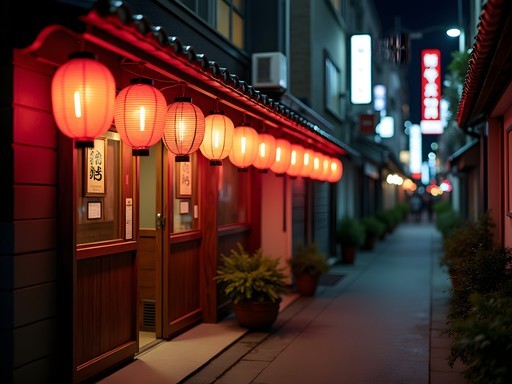
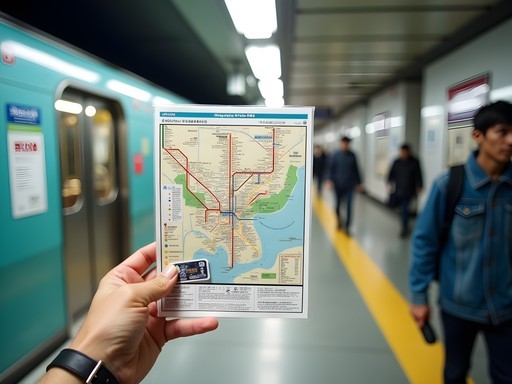
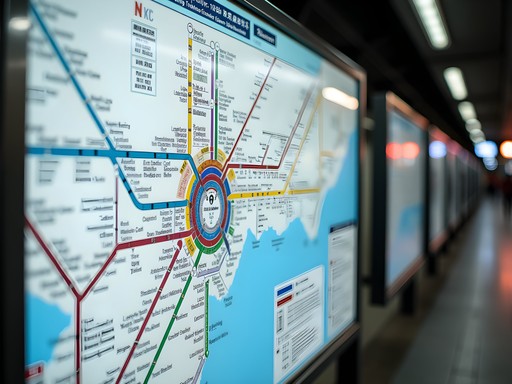
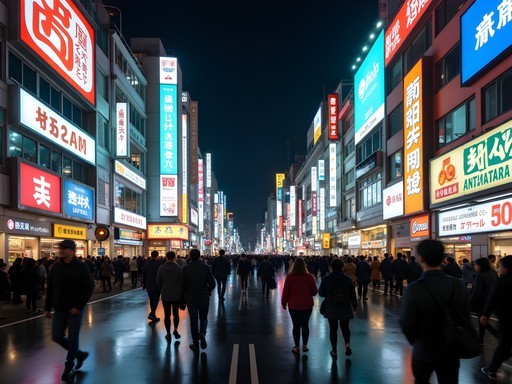
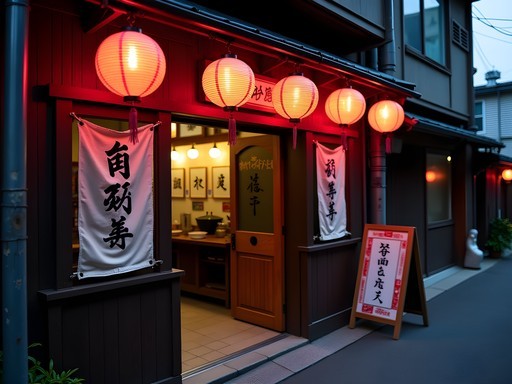

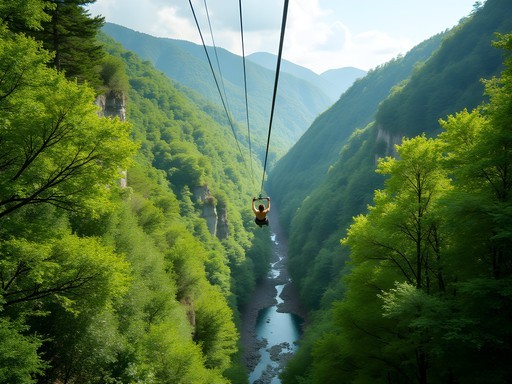
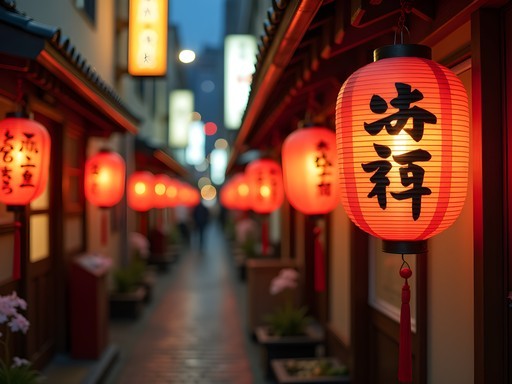
Comments
sunsetchamp
This is super helpful! Do you have recommendations for hotels near the business districts? Want something convenient but not crazy expensive
hikingmaster
The transit system there is incredible!! Got everywhere on time, every time. Way better than trying to deal with taxis
sunsetchamp
is it hard to figure out? never been to japan before but planning a trip
hikingmaster
not really! get a suica card and google maps works perfectly. you'll be fine
Douglas Bradley
Really appreciate the section on finding downtime between meetings. I've found that the small izakayas near business districts offer the most authentic experience - locals are often curious about foreign business travelers and it's led to some fascinating conversations about work culture differences. The gift-giving protocol section is spot-on too. I once brought maple syrup from Canada as gifts and it was surprisingly well-received. The key is thoughtful presentation over expensive items.
hikingmaster
maple syrup is genius! way more personal than generic stuff
sunnyblogger
Love this guide!! Tokyo is amazing for business travel, everything runs like clockwork 🚄✨
journeyone
Quick question - how strict are they really about the business card exchange thing? I've got meetings in Shinjuku next month and kinda nervous about messing up the etiquette stuff
Douglas Bradley
It's quite important actually. Present and receive with both hands, take a moment to read the card carefully, and never put it directly in your back pocket. I learned that the hard way in Osaka. Keep them in a card holder if possible.
journeyone
thanks! definitely getting a card holder then
Taylor Moreau
Justin, brilliant piece on navigating Tokyo's business landscape. Your section on gift-giving protocol is spot on. I'd add that timing matters tremendously - presenting gifts at the end of meetings rather than the beginning is generally more appropriate. Also, for those traveling to Tokyo regularly for business, I've found tremendous value in building relationships with hotel concierges. They can arrange last-minute dinner reservations that would be impossible otherwise, especially when entertaining clients. The Peninsula and Mandarin Oriental concierges have saved my reputation more than once!
wavewanderer
Great post! Heading there for work next month and feeling much more prepared now.
Haley Hamilton
Even though I'm usually a backpacker, I had to do a business trip to Tokyo last year and this would have been SO helpful! The section on finding authentic downtime between meetings resonated with me. I discovered this tiny tempura place in Asakusa that became my sanctuary between meetings. Also, for anyone traveling there, I found that having a pocket translator was incredibly useful for those moments when English wasn't an option, especially in smaller establishments. Justin, did you find any particular neighborhoods best for unwinding after a day of meetings?
Justin Cruz
Thanks for sharing, Haley! For unwinding, I loved Nakameguro - especially walking along the canal in the evening. The small bars and cafes there have a more relaxed vibe than the business districts. Koenji is another great area with a creative atmosphere and excellent small izakayas where you can decompress.
citybackpacker
The transit tips saved me so much time! Suica card is essential.
escapemate
Going to Tokyo for my first business trip in September. Any specific gift recommendations that would be appropriate to bring for my Japanese counterparts?
Justin Cruz
Great question! Something unique from your home region works well - local specialty foods or crafts that are beautifully packaged. Avoid anything in sets of four (associated with death). I've had success with premium chocolates, specialty coffee beans, or artisanal spirits. Just make sure it's well-wrapped - presentation matters tremendously!
escapemate
Thank you! I'll look for something special from my hometown. Appreciate the tip about avoiding sets of four - wouldn't have known that!
Venture X
Premium card with 2X miles, $300 travel credit, Priority Pass